Before we delve into one of the least discussed aspects of life here, I’d like to clarify a few things lest you misunderstand my intent. Or go wandering off into anti-Israel or anti-Semitic conspiracy theories, pretending identity issues don’t complicate every culture.
I am not questioning whether there is a genetic connection between Jewish people. Various studies have shown extensive shared DNA among Ashkenazi, Sephardi, and other Jewish populations. Obviously conversions, conquest, and migrations have diversified our phenotype, but by and large, Jews today share a great deal of genetic heritage. Anecdotally, I have moments here where I think I see a Jewish friend from home, until I come closer and hear them speaking Hebrew. While Jews come in all shapes and sizes (and of course, this observation doesn’t extend to Jews by choice), there are clearly ancestral connections between us. My ancestors migrated to the U.S. from Eastern Europe, but people in Cyprus speak to me in Greek. My own genealogical research has shown my DNA most similar to Sicilians, Palestinians, Syrians, Greeks, and Lebanese. No ethnic Pole would mistake me for one of them.
In addition, I am not suggesting there aren’t cultural links between Israelis and Jews around the world. Shared holidays, cuisine, religious texts, history, and family ties bind us. Nor am I raising this critique to carry the banner of Palestinian nationalism (or any nationalism). Sometimes accepted truths need to be questioned. Every people’s narrative, including theirs, is worthy of critique and reevaluation to help understand our modern world better. I’m just better positioned to talk about my own.
There is nothing significantly more natural about one country’s existence versus another. Whether it’s the French nation, the Moroccan nation, or the American nation- borders are fairly arbitrary and cultural boundaries are far more porous than you might expect. Until World War II, most French citizens didn’t even speak French as their first language. Until 1549, present-day Morocco was actually ruled by Berbers, not Arabs. For the past 2800 years, the country has been ruled by Arabs for only about 350 years, half of which was under strong European influence. Yet today, almost everyone would think of Morocco as an Arab country, despite its significant 30% Berber minority that has not yet assimilated into Arab culture. When Ellen DeGeneres was born in 1958, Hawaii wasn’t even a state. The American flag had 48 stars. And over 1/3 of Louisiana spoke French, not English, as a native language.
So now, back to Israel.
Israel is defined as a Jewish state. Its various symbols, including the Star of David, the menorahs you see dotting every street corner this winter, the Hebrew signage, are all readily recognizable to any Jew around the world.
Yet there exists a bit of an internal paradox. You see Israel was founded to be unlike the Jews of the Diaspora. The express purpose of Israel is to “ingather” the “exiles”- to bring Jews to the Land of Israel. Ideologically, presented as the only true, authentic home of the Jewish people.
This nation-building project is largely a product of both frustration with 2,000 years of Christian and Muslim persecution and the nationalism that swept the 19th century world. It doesn’t take a great deal of creativity to see deep desires in Jewish texts and prayers to return to Zion. It’s not as if the effort came out of nowhere. But it was a minority movement until the 20th century and there needed to be a narrative to build the nation.
Every nation has founding myths, often rooted in a bit of truth and a lot of imagination. America is the land of promise and opportunity, a country of hard-working immigrants that gives refuge to those seeking persecution. An imperfect, but consistently improving place, bringing the promise of ever-greater democracy. Of upward mobility to those willing to put their heads down and work. A lousy narrative that the past two years has shown to be fallible, at best. Which is why so many American progressives are baffled by the Trump phenomenon. Because having been taught that the arc of history bends towards justice, they now see that it’s more like a chaotic pendulum that swings from the Chinese Exclusion Act to the Voting Rights Act to the Muslim travel ban. That while gay marriage is now legal, real wages haven’t changed in 40 years, income inequality has consistently increased since 1980. Including under Bill Clinton and Barack Obama. Anti-gay and anti-Semitic hate crimes are increasing at an alarming rate. But in good news, the number of bilingual immersion schools has increased fourfold in a decade. Reminiscent of the plethora of German-language schools that dotted America until World War I paranoia led to their persecution and eventual demise.
In short, the American mythos, like all national mythos, is based on a little bit of fact and a lot of ideology. And the more unquestioningly you buy into it, the more you’ll be disappointed when you realize that rather than America constantly progressing towards a better future, it’s complicated. And that it’s OK- it might actually help us find better solutions to our problems if we accept the non-linear and unpredictable nature of history.
So what’s Israel’s founding mythos? The Jewish people are from here. OK, that much I agree with. We have had a continuous presence here since biblical times. Again, true- as a visit to Peki’in showed me. After 2,000 years in which most Jews suffered in “exile” (a charged word, but let’s say “outside of Israel”), we returned, struggled, made the desert bloom, revived the Hebrew language, and re-established the Jewish state. Bidding adieu to the insufferable and contorted Jewish cultures of the Diaspora and starting a strong, independent Israeli future.
This part presents a conundrum. First off, while Jewish tradition does speak extensively of exile and the Land of Israel, most Jews didn’t see living here as a practical step. While rabbis over the centuries have been buried here, and there has always been a Jewish community here, the vast majority of Jews have lived elsewhere for two millennia. While small populations of Jews moved here over the centuries, 99% of world Jewry did not. Even during intense persecutions. And not simply because they couldn’t make it here. Sephardic Jews in the 1500s made their way to Tsfat– it was possible. But most Jews fled Inquisition Spain to Turkey, Greece, the Netherlands, and other far-flung destinations.
Jews have indeed experienced intense, mindbogglingly irrational persecution for centuries. At the mercy of the latest ruler’s whims, our mixed languages are testament to how many times we’ve been ruthlessly expelled. Which is why Yiddish contains ancient Hebrew, Aramaic, Latin, medieval French, medieval German, Polish, Russian- and today new English and Modern Hebrew loanwords. And why Judeo-Spanish (popularly known as “Ladino”) contains medieval Spanish, Catalan, and Portuguese influence supplemented by Greek, Turkish, Arabic, and other languages. Our linguistic heritage, one of our greatest accomplishments, shows both our resilience and our willingness to incorporate the best of surrounding cultures while building our own. It is an archaeology of our past.
The question is whether the past 2,000 years have been nothing but suffering. And the answer, as even a cursory trip to Europe or the Middle East would show, is no. Grand synagogues, survivors of genocide and annihilation, dot the European and Middle Eastern landscape. For centuries, Jews have served as royal advisors, as traders, as doctors, as Prime Minsters, as Senators, as Congresspeople, as Supreme Court Justices. While most Israelis know Poland only from their high school trip to learn about the truly horrific experiences of the Holocaust, they probably don’t know that for about 500 years, Poland was known as “paradisus iudaeorum“. The Paradise of the Jews thanks to the welcoming and tolerant Polish leaders who invited them to their kingdom. Which until the Holocaust was the single largest Jewish community on earth. Home to beautiful hand-crafted wooden synagogues, economically vibrant shtetls, and a multicultural society. With religious freedom far more advanced than many Western European countries.
None of this whitewashes anti-Semitism. Both Christian (and to a slightly lesser but still potent degree) Muslim leaders found ample opportunities to scapegoat Jews. While Jews often enjoyed prosperity during times of hope and progress, when things went awry, they were (and are) often first in line to receive the unwarranted blame. Besides discrimination in occupations, inferior legal status, and frequent violence, Jews have been routinely kicked out of their homes for eons. Take a look at this map (sourced from here):

And this map *only* covers 500 years of Jewish history. It doesn’t include the Babylonian Exile, the Roman Exile, and certainly not the modern expulsions of Jews from Arab states. Here’s a more extensive list for when you need a depressing read.
So it’s not surprising that Jews would at some point want the safety and stability of a homeland. The problem is that when you base the premise of that claim on the idea that everyone hates us and the only thing we experienced for two millennia was persecution, you miss out on a huge part of the story. It’s a lie. It erases amazing Jewish resilience and creativity, our sometimes productive relations with our non-Jewish neighbors, and it distorts the way modern Israelis see themselves and the rest of the world.
Recently, I watched a couple of Corey Gil-Shuster’s YouTube videos. Corey had the creative idea of letting Israelis and Palestinians speak for themselves, so he solicits questions from his fans and interviews people on the street. The ones I saw this week were about Israelis of Polish and Romanian descent. By and large, the respondents emphasized they have no connection to these countries or cultures. While a few displayed some curiosity about visiting, most detested the cuisine, the languages, and the heritage. It’s sad- while our history in these countries is certainly bittersweet, you can’t really understand yourself without knowing your history. It’s worth showing empathy for Israelis struggling with this conundrum- the vast majority of Ashkenazim here are descendants of Holocaust survivors whose families were obliterated.
One respondent caught my eye in particular. He had no interest in Eastern Europe because “all of our history is here”. In Israel.
This is an extraordinary and deeply ignorant thing to say, with huge political ramifications. Jews have lived outside Israel longer than we have lived inside. His own family didn’t return here until two generations ago. Every aspect of modern Israeli culture is fused from another source. From our shnitzel to our jachnoon, from the Yiddish word “balagan” to the Arabic “yalla”.
To the Hebrew language itself. While Israel’s founding myth suggests the ancient Hebrew language was “revived”, many scholars see this phenomenon in a different light. In the late 1800s, Zionists began writing newspapers and books in Hebrew throughout Europe. Occasionally salons took shape where people tried to converse in the language, a language they had often learned in yeshiva and which had, at various times, served as a kind of basic trading tongue between Jewish communities. In other words, spoken Hebrew had ceased to be the mother tongue of Jews since ancient times. It did, however, continue as a written religious language, a source of vocabulary for Jewish languages, and a kind of very basic spoken language when Jews met from different cultures.
Therefore, when Zionists proposed a Jewish national project, they turned to Hebrew as a unifying language that had continued in one form or another to be present in communities around the world. The problem was nobody spoke it as a mother tongue. So when sitting in salons (or eventually classrooms in what is today Israel), Jews had to formulate this ancient tongue in terms of the ones they already spoke. For the vast majority of early Zionists, this foundational native tongue was Yiddish. The beautiful, underappreciated, nuanced language of Ashkenazi Jewry for over 1000 years.
In fact, with the exception of some Yemenites, almost all early Zionist pioneers were native Yiddish speakers. I recently visited Zichron Yaakov again. This beautiful city was one of the first Jewish town re-established in the ancient land of Israel in the late 1800s. And as makes logical sense, much of its early documentation was written in the language of its residents- Yiddish. Here’s a 1902 city archives document…in the mamaloshn.
Eliezer Ben Yehuda, a Zionist icon, raised his son as the first monolingual native Modern Hebrew speaker. But he, like the many teachers spreading the language, had to rely on his native language both consciously and subconsciously to build a vocabulary. To build sentences. There’s not nearly enough content in the bible and medieval rabbinic writings to cover modern topics like electricity, trains, and even gossip at the market. You don’t hear Moses asking God “hey, how’s it going?” in the Bible. Which is why the modern Hebrew phrase “ma nishma?” is actually a direct translation of the Yiddish “vos hert zakh?” What is heard…or, as we might say more colloquially, “how are you?”
The influence of Yiddish (and to a smaller degree Judeo-Arabic, Judeo-Spanish, Palestinian Arabic, Russian, and other languages) on Hebrew is substantial. Far beyond what the average Israeli knows. Mah pitom, mah atah omer, tachles, kitzer, nu- these words and so many others are either direct loanwords from Yiddish or translations of Yiddish phrases not found in old Hebrew texts. While it’s far beyond my expertise, the influence extends to rather fundamental things like syntax as well.
In other words, Modern Hebrew is a kind of fusion language. Some claim Hebrew revivalists murdered Yiddish, simply relexifying the language with Semitic words. Even as its speakers were in fact persecuted by fanatics like the Battalion for the Defense of the Language. On the other hand, the average Israeli accepts the national mythos that he or she speaks the revived Semitic language of their ancestors.
But the truth perhaps lies somewhere in-between. Israeli linguist Ghil’ad Zuckermann claims that Modern Hebrew is not Hebrew at all. Nor is it Yiddish. It’s actually “Israeli”. That’s right, just like the French speak French, he claims Israelis speak Israeli. And that rather than being simply Yiddish overlaid with Semitic vocabulary or a “miraculously” revived dead language, it is quite simply another language. With elements of both our Semitic and Diaspora past- Hebrew and Yiddish. A very Jewish approach to building a language- it’s how all of our tongues have been formed. One built on another.
It’s a fascinating thesis and I encourage you to visit his website to get a better understanding of his perspective.
To me, it makes a lot of sense. When I hear Israelis speaking Hebrew, I hear the intonations of Yiddish and the Yiddish-infused English I grew up with. But the words are largely Semitic, indicative of a major linguistic and cultural shift.
So why does all of this matter?
Because if Israelis in fact speak Israeli, and not a revived exotic language nor simply a dialect of Yiddish, then that has big implications. It means that the despised Diaspora Jew lives in every sentence we speak here, unwittingly. It means that Jewish history took a rather drastic turn here- that indeed our Semitic vocabulary has overwhelmed all our other languages. So that even if much of the language is influenced by Yiddish, the words themselves are largely constructed from the Bible, from medieval rabbis, from new innovations using ancient texts.
The implications are enormous.
Visiting the Zichron Yaakov “First Aliyah Musem”, I learned about the discourse surrounding the first wave of pioneers to resettle the Land of Israel in the 1880s. More than anything else, it was an interesting opportunity to see the Israeli mythos at work- and to understand its fault lines.
Here are some pictures from a video telling the tale of a prototypical family as they’re leaving Eastern Europe. Read the captions:
The accompanying audio basically said: oy, the persecution! We’re leaving to escape it because the Diaspora is miserable, but our real reason for leaving is our desire to build a homeland. Beware- the angry natives. Don’t worry, we’ll befriend them. We’ll be manly, not like those effeminate Diaspora Jews. We’ll work the empty land and make the empty desert bloom. But don’t push the mother too much- she’s bearing a future Israeli baby in her tummy. We’re fiercely independent but still rely on donations from Jews abroad to survive. We could go join the Jews living comfortably in America, but instead we bravely suffer for the good of the nation here.
The over-the-top rhetoric is not much different than the romanticized stories I learned in grade school about American pioneers.
And its just as problematic if it’s not analyzed. It contains numerous contradictions. If the main reason for olim arriving was to build a homeland, why didn’t they come earlier? If the main reason was to escape persecution, why wouldn’t they go somewhere more economically promising? Early Zionists here struggled. Which is why of the 2.5 million Jews who escaped 1880s pogroms, only 35,000 came here. Of whom indeed 40-90% did leave. If the land was empty and in need of restoration, how was it that there were Arabs here? How were they making a living? And in fact, how were they making a living if the conditions were so rough that most Jews left? Why were the Arabs to be both feared and befriended- without even having met them? How was mother going to give birth to an Israeli when the State of Israel didn’t exist yet? How are the pioneers so independent and strong if their livelihood is dependent on donations from Jews abroad? Why did they think life was so easy for Jews in America, where most toiled in sweatshops? And why did some choose to stay in the Holy Land despite the hardships?
You’ll probably have to re-read that paragraph a few times, it’s enough to make your head spin.
These are difficult questions. The kind of questions few Israelis think to ask. The kind of questions most people fail to raise about their own national identities which are just as fraught.
As I see it, there’s some truth to all of these questions. Clearly, some pioneers were so ideologically motivated that even disease and poverty didn’t stop them from staying. It’s also clear that some people came primarily to escape pogroms, and then hopped on the next boat to more prosperous countries. That they weren’t really as motivated by Zionism. That while it took guts and courage to come here, you’re not really strong and self-sufficient if your enterprise is being funded by charitable donations from Jews abroad. That those Jews abroad are maybe not all suffering as much as you suggest if some have money to give you. The land was clearly underdeveloped and impoverished, explaining why so many Jews left. But it was also not simply empty and in need of Jews to make it “bloom”. As evidenced by the newcomers’ concurrent fear of and desire to befriend the local Arabs, of whose presence they were aware.
Or so suggests the video. It’s just a video, but one whose contradictions haunt this land to this day. It explains why Israeli governments both rely on and dismiss Diaspora Jews. We deserve their charity but really they should be living here like us. We ran away from their identity, but we want their money. The Bank of Diaspora. But boy, things must be terrible for them. And somehow, worse for us, but our country is better. A series of spiraling thoughts that manifests itself in today’s Diaspora-Israel relations crisis.
It explains the common Israeli stereotype of Arabs as backwards, but also as worthy of admiration. A source of fear, but also a source of slang, of Israeli cuisine, and in earlier times, even a new style of clothing. The land was empty, fallow, deserted, in need of our industrious might to improve it. But the people here, in the supposedly empty land, will both not like us and become our friends. Representing both an intense realism and a far-fetched optimism, perhaps delusion. An acknowledgement that even the most justified or necessary national project will entail changes or displacement that the existing population may not like. But that we will find a way to live with them as brothers. A hope not yet realized. And a complicated, contradictory view of history not yet reckoned with. A pain largely unacknowledged and festering. As conflict and misunderstanding here mars the future of both peoples.
And lastly, the identity question. One that holds particular resonance for me. The ideology suggests that Diaspora Jews are weak and suffering. But the very Jews who came here, to become Israeli, were from there. The video itself portrays the pioneers speaking Modern Hebrew, a language that was not spoken in Poland. The mother is meant to give birth to an Israeli child, who she conceived in Europe. In Israel, a state that in 1880, did not yet exist. So how is this baby Israeli? And why are these people speaking what is the 1880s was a non-existent language where they lived? As children in this museum look on trying to learn about their history?
It’s the central identity question for Zionism and for Jews like me who come to live here. We are seen as a source of weakness, but of potential hope. Rather than acknowledging that early Jewish communities here spoke Yiddish, that they came from a real place that had culture. That it contained suffering but also life. This video, much like the Zionist imagination that surrounds it, misleads. It erases Judaism itself. Because the miraculous thing about Israel is that people brought their cultures here and managed to build on top of them. To fuse them. To find creative ways of building a new future, with all the complexity that came with it. But by erasing these people’s Judaism, the video demonstrates the central problem of Zionism. You can’t mold a people that isn’t there. Most discourse about Israel focuses on the Arab-Israeli conflict. What is being missed is how the country’s development necessitated an internal paradox that has yet to be solved. How do you turn a Jew into an Israeli, while needing the Jewishness to justify the Israeliness? How do you leave behind his Jewishness in order to create a new identity that is founded on it? In other words, Zionism posits that we are entitled to live in this land due to our connection to it. But for 2,000 years, most of us have lived outside it, and we’re the population being encouraged to return to it. In order to make the “New Jew” to populate this country, you have to both take the Jew out of his old land and pretend that he was something different all along. Because somebody had to start this process. And that somebody was living in Eastern Europe, not Israel. Hebrew revivalist Eliezer Ben-Yehuda was born Eliezer Yitzchak Perlman in Belarus.
So if Ben Yehuda’s premise was that we need a new type of Jew, one who speaks Hebrew, one who puts aside his Diasporic identity in favor of an Israeli one, how do you do that? How do you do that when Eliezer himself wasn’t born in Israel, his own culture was one of gefilte fish and kugel and yeshiva studies? His Hebrew language itself carried across generations through religious texts and countless phrases in the Yiddish language itself. Which he then used to build Israel’s national tongue.
The way you do it is to stop being a Jew. Eliezer was the same human being who grew up in Luzhki. Undoubtedly scared and angered by anti-Semitic violence, he had a different vision. To leave- not just to move, but to leave his actual identity behind. Perhaps a response to the intense pain he experienced as a minority, the countless persecutions. But his response was to disavow himself of his self. Or, more generously put, to invent a new identity.
But not just any identity. There was no Jewish country for him to go to. So for him to build it, for others like him to build it, necessitated a different kind of values. Polar opposites, mirror images of what he had been taught. So while Jewish identity for millennia had been built on the interplay of local cultures and Jewish traditions, his identity would be independent and disconnected from the Diaspora. While Jewish identity for millennia had accommodated the powers-that-be out of necessity, his Israeli nation would be blunt, would be muscular and direct.
In short, for Ben Yehuda and thousands of other early Zionists, and the many olim who followed them, to become Israeli in the fullest sense meant disavowing who they had been. It meant becoming Israeli instead of Jewish. A blunt sentence that many of my Israeli friends will find hard to digest.
Because there’s nothing congruous about the countless Romanian and Polish Jews in Corey’s YouTube video deriding their own cuisines. While feeling that hummus and falafel are what it means to be Jewish. Because unless your grandparents worshiped in a synagogue in Aleppo, hummus has about as much to do with Judaism as sushi.
Which is the point. Israeli identity is about a new start. A new state. A new place where we control our destiny and not live at the behest of the fragile grace of different rulers.
The challenge for Israelis today, though, is to realize that this new start came at a price and to realize its full potential, it must be understood. To realize that there’s nothing inherently more logical about being Israeli versus being a Jew in America. To not be surprised that most American Jews don’t speak Hebrew- because the only Jewish language our ancestors spoke when arriving on Ellis Island was Yiddish. And sometimes Ladino. To realize that your national project is unique- but that its foundations, however much you try to untether them, are rooted in Jewish experience. And not just the ancient Bar Kochba revolt or the Kotel, but also 2,000 years of engaging with the rest of the world.
To realize that your grandparents and great-grandparents are from rich cultures. Yes, marred by persecution, but also enriched by life. That there’s no shame that they spoke different languages or ate kreplach or wore turbans. That your identity today is dangerously fragile and wants for empathy because you don’t understand where you come from. Because the lifeless stones in Jerusalem don’t explain why your Hebrew accent is a fascinating mishmash of Sephardic and Ashkenazi pronunciation. Or why you hate Haredim for using the Ashkenazi accent your ancestors did, or for wearing 17th century Polish clothing. They don’t explain why ayins and alefs magically appear to flesh out the phonetics of foreign words. But that Yiddish does- because those letters serve as vowels in that language. In a way that no Hebrew prophet would possibly have understood 2,000 years ago speaking the language you supposedly speak to this day.
None of this is to discredit Israel or Israelis. Although I’m sure someone will twist my words to try to harm us- an inevitable risk when writing about Judaism and the Jewish people. Lehefech, to the contrary, my purpose is to help Israelis, including myself, understand. That when you pretend you can so thoroughly untie yourself from your roots, you don’t understand why you are the way you are. You don’t understand why American Jews might not want to move here, but care a lot about this place. You don’t understand why some of your Arab neighbors care what you call chopped tomatoes and cucumbers. Even as some of them fail to realize that some of the foods they call their own have been eaten by Jews for centuries in the Middle East.
You don’t see that the Ashkenazi Israelis in the YouTube clips I saw are shadows of themselves. Proclaiming how thoroughly Israeli they are for eating falafel. Distancing themselves from their Judaism when they make faces of disgust at the mention of the foods their families actually ate for centuries. It’s an act of self-hatred that Israelis have had to do for generations, a price they pay for building a new identity, but also one worth questioning the value of today.
The question facing us is immense. If Israelis (and olim) continue to have to distance themselves from their past, from Judaism itself, what will remain of our people? While this article asks whether Israel and “Diaspora” Jews can survive as one people, my question is were we ever one? Or do you by definition stop being Jewish in order to be fully Israeli? Do you have to fully reject the other half of our people in order to be accepted here?
It’s a daunting question. One that haunts me as an immigrant. Someone who came here precisely to be able to be more Jewish. To avoid the awkward and sometimes scary anti-Semitism I experienced. To be free to be me. To accept some changes that come with integrating into a new society. But certainly not to reject who I am, where I come from, and my heritage. That’s the exact opposite of what I want to do.
So therein lies the rub. Can I become fully Israeli while remaining fully Jewish? A seemingly preposterous question, but a relevant one. As I asked museum staff in Zichron Yaakov where I could find Yiddish documents from the early settlement, and received puzzled and disgruntled looks. As if it were something I shouldn’t ask about.
In the end, I don’t have an answer. But I have an inkling. Judaism is an irrepressible force with thousands of years of history. Including coping with some of the most challenging and disturbing moments of humanity, and surviving.
Zionism is one way that some Jews have approached solving that problem. And in some ways, it has succeeded. Israel is the only growing Jewish community in the world and the only country with a majority Jewish population. At a time when anti-Semitism is growing and Jews rely on this country for refuge.
But it is also is a ticking time-bomb for Judaism itself. For what has enriched Judaism over the years was not the sacrifices on the Temple Mount nor the Land of Israel itself. Rather, it has been our ability to balance, to live in tension with our identity as different and strategically synced with that of our neighbors. To our benefit, for our growth, and for the enrichment of humanity. Which is why when I speak Yiddish, I can understand almost any German. And he can understand me- when I choose to use words he’ll know. And when I want to have a bit more privacy or protect myself, I throw in some Aramaic and Hebrew and Polish and he has no idea what I’m saying. It’s the creative Jewish balancing act that has made us who we are. And allows us to both engage the world and have some distance from it.
To be a Jew is to push in two seemingly opposite directions. To fight to conserve your culture, and to fight for humanity to progress so the former is possible.
Once upon a time, Zionists maybe needed space from the traumas they had experienced to build a new identity. I can relate to that. But at a certain point of maturity, it’s beneficial to look back and see where you’ve come from. To do anything less is to empty yourself of part of who you are. And to live in perpetual confusion about the state of the world and the meaning of your identity.
I posit that Israelis are Jews, even if some of them would prefer not to be, at least in the sense of the Diaspora identity they have been taught to loathe. Which is why in Zichron Yaakov, a place that almost entirely spoke Yiddish at its foundation, there is almost no trace of the language today. But a short visit to the local library and a talk with the friendly librarian helped me find a copy of “Le Petit Prince” in the language of my ancestors. One of our languages.

The foundations of Jewish history are underneath our feet. They are in the Steins and Skys and Mans and Bergs that run in your families. They lie in my English name, Matt, my Hebrew name, Pesach, and my Israeli name, Matah. And I lost nothing for calling the last one Israeli and not Hebrew. They’re all a part of me and my journey.
So my hope for Israel, for my Israeli friends, is that you can synthesize these varying aspects of self. Not to pretend they don’t exist- nor to pretend it’s an easy task. There are reasons we give ourselves space from the past. And there are times to reconnect to it, to better understand ourselves, and to build a better future.
Israel will better connect to American Jews, to Europeans, to our Arab neighbors, and to themselves when we have a better sense of what actually happened here and who we are. Not in the sense of pretending Israeli identity is fake- it’s not. That’s an anti-Semitic trope in and of itself. But rather to see how we got to where we are. And to realize that it wouldn’t be so bad, maybe even good, to put the pieces of the puzzle back together again. To see the fascinating kaleidoscope of who we are.
So that the man in the YouTube video can be proud of our ancient history here, his family’s perseverance in Europe, and his own life here. That it’s a multilayered, rich, complex story worthy of every chapter. Because you can’t return to a land if you’ve never left it. And you can’t live there successfully without some of the wisdom you gained while you wandered.




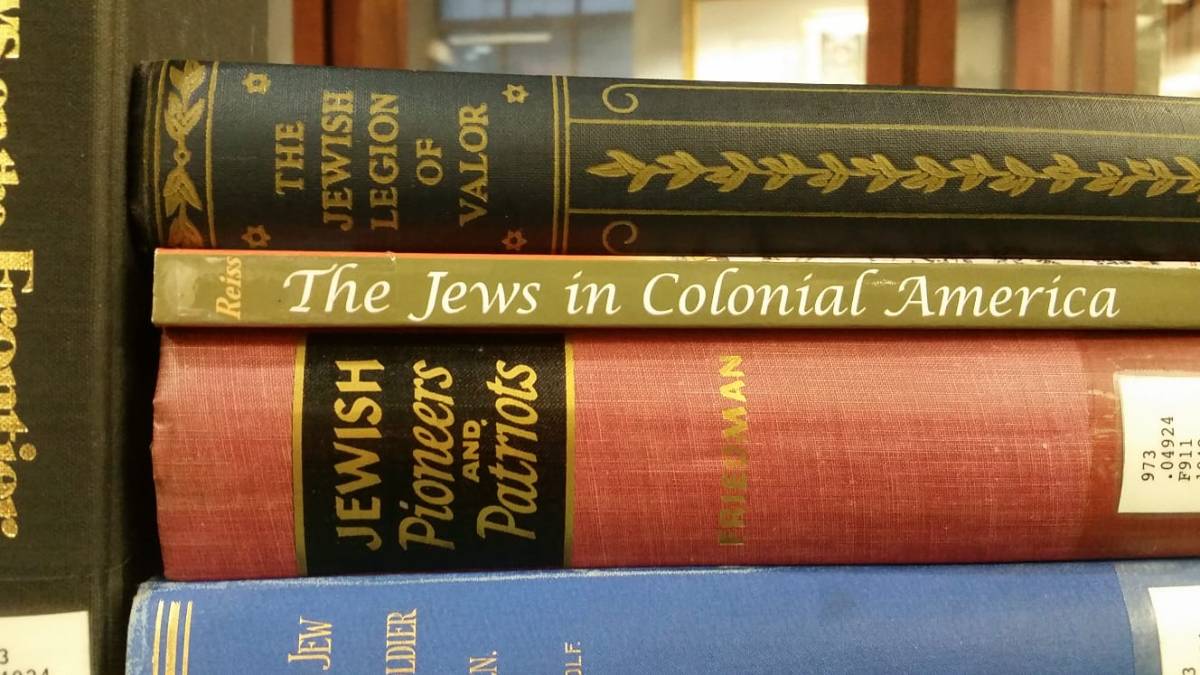

















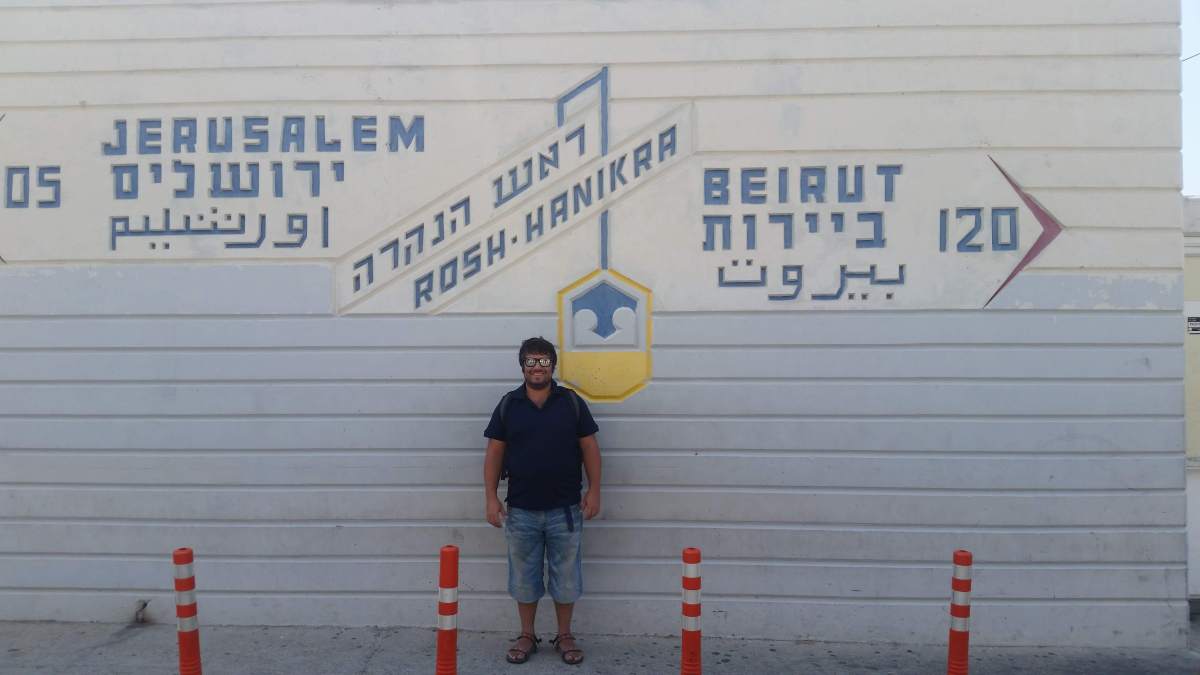

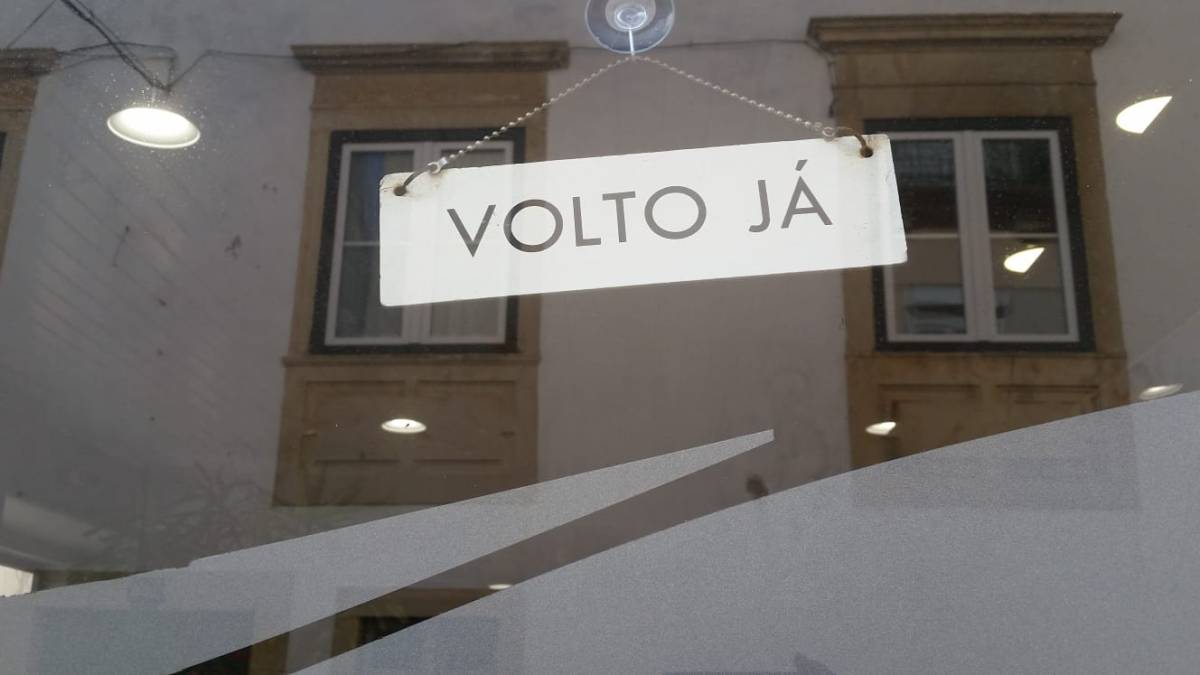






























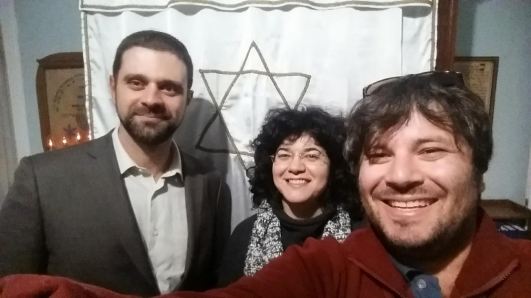















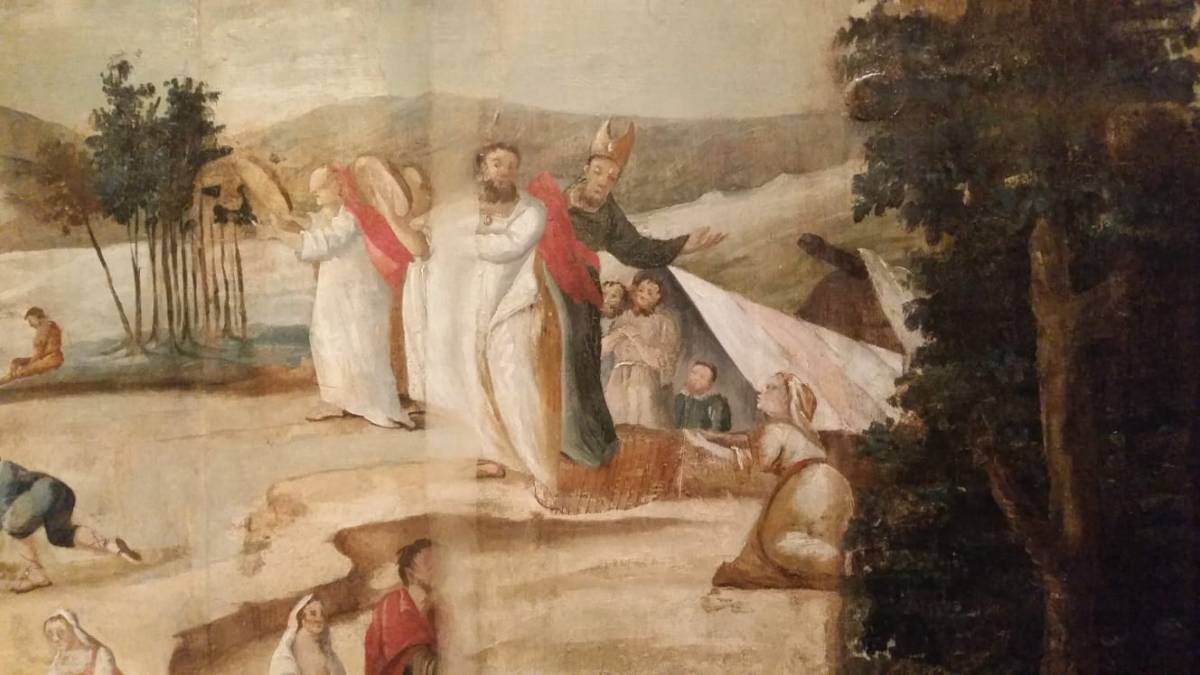
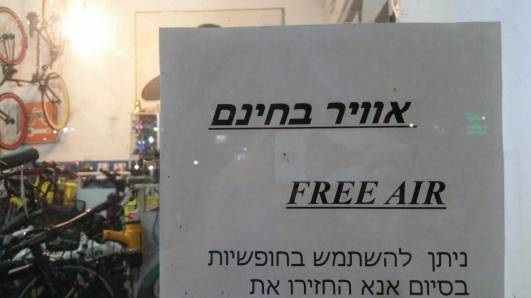
















You must be logged in to post a comment.